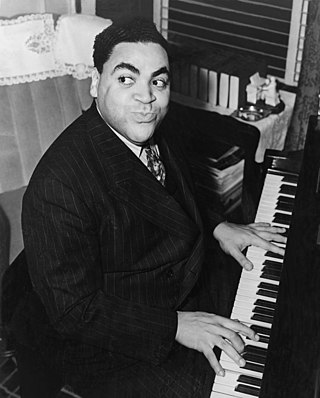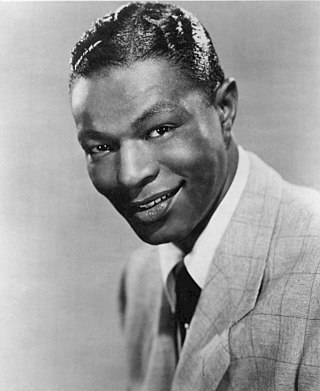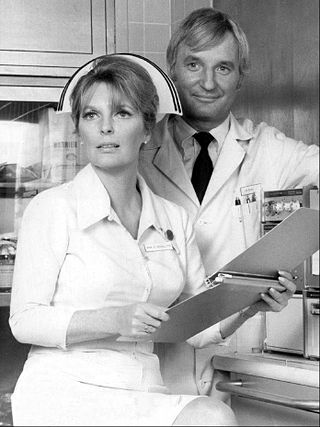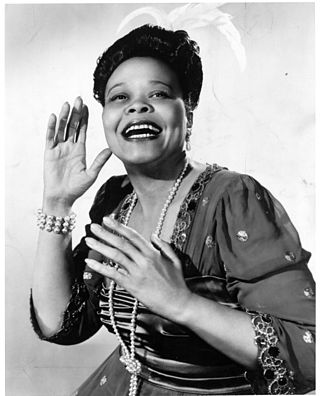Related Research Articles

Thomas Wright "Fats" Waller was an American jazz pianist, organist, composer, and singer. His innovations in the Harlem stride style laid much of the basis for modern jazz piano. A widely popular star in the jazz and swing eras, he toured internationally, achieving critical and commercial success in the United States and Europe. His best-known compositions, "Ain't Misbehavin'" and "Honeysuckle Rose", were inducted into the Grammy Hall of Fame in 1984 and 1999.
"Stormy Weather" is a 1933 torch song written by Harold Arlen and Ted Koehler. Ethel Waters first sang it at The Cotton Club night club in Harlem in 1933 and recorded it with the Dorsey Brothers' Orchestra under Brunswick Records that year, and in the same year it was sung in London by Elisabeth Welch and recorded by Frances Langford. Also in 1933, for the first time the entire floor revue from Harlem's Cotton Club went on tour, playing theatres in principal cities. The revue was originally called The Cotton Club Parade of 1933 but for the road tour it was changed to Stormy Weather Revue; it contained the song "Stormy Weather", which was sung by Adelaide Hall.

Nathaniel Adams Coles, known professionally by his stage name Nat King Cole, was an American singer, jazz pianist, and actor. Cole's career as a jazz and pop vocalist started in the late 1930s and spanned almost three decades where he found success and recorded over 100 songs that became hits on the pop charts.

Robert William Troup Jr. was an American actor, jazz pianist, singer, and songwriter. He is best known as the composer of the rhythm and blues standard "Route 66" and for the role of Dr. Joe Early with his wife Julie London in the television program Emergency! in the 1970s.
"The Christmas Song" is a classic Christmas song written in 1945 by Robert Wells and Mel Tormé.
"On the Sunny Side of the Street" is a 1930 song composed by Jimmy McHugh with lyrics by Dorothy Fields. Some authors say that Fats Waller was the composer, but he sold the rights to the song. It was introduced in the Broadway musical Lew Leslie's International Revue starring Harry Richman and Gertrude Lawrence.
"I'm Gonna Sit Right Down and Write Myself a Letter" is a 1935 popular song with music by Fred E. Ahlert and lyrics by Joe Young. It has been recorded many times, and has become a standard of the Great American Songbook. It was popularized by Fats Waller, who recorded it in 1935 at the height of his fame.

"Smoke Gets in Your Eyes" is a show tune written by American composer Jerome Kern and lyricist Otto Harbach for the 1933 musical comedy Roberta. The song was sung in the Broadway show by Tamara Drasin. Its first recorded performance was by Gertrude Niesen, who recorded the song with orchestral direction from Ray Sinatra, Frank Sinatra's second cousin, on October 13, 1933. Niesen's recording of the song was released by Victor, with the B-side, "Jealousy", featuring Isham Jones and his Orchestra. The line — When your heart's on fire, smoke gets in your eyes — apparently comes from a Russian proverb.

Stormy Weather is a 1943 American musical film produced and released by 20th Century Fox, adapted by Frederick J. Jackson, Ted Koehler and H.S. Kraft from the story by Jerry Horwin and Seymour B. Robinson, directed by Andrew L. Stone, produced by William LeBaron and starring Lena Horne, Bill "Bojangles" Robinson, and Cab Calloway. The film is one of two Hollywood musicals with an African American cast released in 1943, both starring Lena Horne, the other being MGM's Cabin in the Sky. Stormy Weather is a primary showcase of some of the leading African American performers of the day, during an era when African American actors and singers rarely appeared in lead roles in mainstream Hollywood productions. The supporting cast features the Nicholas Brothers in arguably the screen's most bravura dance sequence, Fats Waller, Katherine Dunham and her dancers, and Dooley Wilson. Stormy Weather takes its title from the 1933 song of the same title, which is performed almost an hour into the film. It is loosely based upon the life and times of its star, dancer Bill "Bojangles" Robinson.
"Ain't Misbehavin'" is a 1929 stride jazz/early swing song. Andy Razaf wrote the lyrics to a score by Thomas "Fats" Waller and Harry Brooks for the Broadway musical comedy play Connie's Hot Chocolates. As a work from 1929 with its copyright renewed, it will enter the American public domain on January 1, 2025.
"Don't Blame Me" is a popular song with music by Jimmy McHugh and lyrics by Dorothy Fields. The song was part of the 1932 show Clowns in Clover and was published in 1933. Popular versions that year were recorded by: Ethel Waters, Guy Lombardo, and Charles Agnew.
"Honeysuckle Rose" is a 1929 song composed by Thomas "Fats" Waller with lyrics by Andy Razaf. It was introduced in the 1929 Off-Broadway revue "Load of Coal" at Connie's Inn as a soft-shoe dance number. Waller's 1934 recording was inducted into the Grammy Hall of Fame in 1999.

Killer Diller is a 1948 American musical comedy race film directed by Josh Binney and released by All American. Academic and comedienne Eddie Tafoya wrote that "Killer Diller is really more concerned with showcasing black talent appearing at Harlem's legendary Apollo Theater than it is with providing audiences with a satisfying story." The movie features The Clark Brothers, Nat King Cole, Moms Mabley, Dusty Fletcher, Butterfly McQueen, the Andy Kirk Orchestra and the Four Congaroos. René J. Hall was the film's arranger.
"All I Have to Offer You " is a song written by Dallas Frazier and A.L. "Doodle" Owens, and recorded by American country music artist Charley Pride. It was released in June 1969 as the first single from his compilation album The Best of Charley Pride. While Charley Pride's version is by far the most famous one, the first version was actually recorded by the legendary Johnny Bush in 1968 on his album "Undo the Right."

Ada Scott Brown was an American blues singer. She is best known for her recordings of "Ill Natural Blues", "Break o' Day Blues", and "Evil Mama Blues.
"All for You" is a 1943 single by The King Cole Trio, written by Robert Scherman.
"Straighten Up and Fly Right" is a 1943 song written by Nat King Cole and Irving Mills and one of the first vocal hits for the King Cole Trio. It was the trio's most popular single, reaching number one on the Harlem Hit Parade for ten nonconsecutive weeks. The single also peaked at number nine on the pop charts. "Straighten Up and Fly Right" also reached number one for six nonconsecutive weeks on the Most Played Jukebox Hillbilly Records.
"Gee, Baby, Ain't I Good to You" is a 1929 song written by Andy Razaf and Don Redman. It was recorded by the Redman-led McKinney's Cotton Pickers on Victor on November 5, 1929, as "Gee, Ain't I Good to You."
"Ain't That Just Like a Woman (They'll Do It Every Time)" is a 1946 song written by Claude Demetrius and Fleecie Moore and recorded by Louis Jordan and Tympany Five. The song reached number one on the R&B Jukebox chart for two weeks and peaked at number seventeen on the pop chart. Chuck Berry, who acknowledged the influence of both Louis Jordan and Carl Hogan, copied the latter's guitar intro to the song for his 1958 classic "Johnny B. Goode".

Unforgettable – A Musical Tribute to Nat King Cole is a soundtrack album released in the UK in 1983 by the CBS Records division of Columbia in conjunction with the broadcast of American pop singer Johnny Mathis's BBC television concert special of the same name that featured Cole's daughter Natalie. The front of the original album jacket credits the concert performers as "Johnny Mathis and Natalie Cole", whereas the CD booklet reads, "Johnny Mathis with special guest Natalie Cole".
References
- ↑ Whitburn, Joel (2004). Top R&B/Hip-Hop Singles: 1942-2004. Record Research. p. 126.
- ↑ Nat King Cole - Listen to Free Music by Nat King Cole on Pandora Internet Radio
- ↑ "That Ain't Right" sung by Ada Brown and Fats Waller in Stormy Weather (1943), online video
- ↑ Stormy Weather from Soundtrack Factory, song list at AllMusic.com